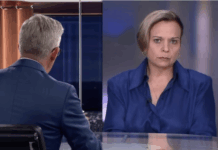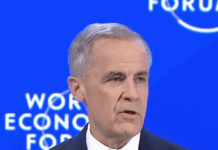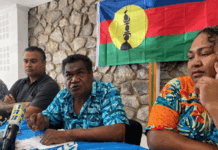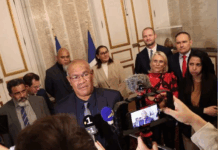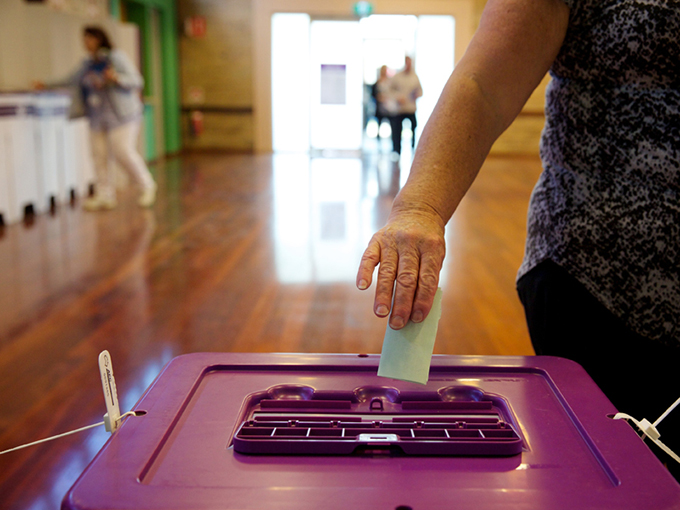
Report from Pacific Media Watch
By Catherine Putz of The Diplomat
Of Vanuatu’s 270,000 people, an estimated 200,000 turned up to vote in last Friday’s snap parliamentary elections.
The Pacific island nation, which is still recovering from the devastation wrought by a direct hit from category 5 cyclone Pam in March 2015, has been reeling from a massive corruption scandal that led to the dissolution of Parliament in late 2015.
In early October, President Baldwin Lonsdale was visiting Samoa when 14 MPs were convicted of corruption. The 14 represented over a quarter of Vanuatu’s unicameral parliament, which seats 52.
The corruption case was a scandal of the kind that would bring down a government the world over. Deputy Prime Minister Moana Carcasses was discovered to have paid nearly $452,000 to other MPs when he was in opposition in 2014.
The judge determined that the payments were corrupt and intended to influence the MPs. Among those convicted was the then Speaker of Parliament, Marcellino Pipite.
According to Vanuatu’s constitution, when the president is abroad the speaker of Parliament assumes presidential powers and duties. The logic seemed simple enough to Pipite, who pardoned himself and the other 13 MPs while Lonsdale was away.
Needless to say, when the president returned he reversed the decision.
‘Clean the dirt’
“I will clean the dirt from my backyard,” President Lonsdale said. “We as a nation have to stop these crooked ways… The power of mercy is vested in the president and not the acting president,” he said.
The reversal was upheld by the country’s Supreme Court. Failing their appeals, the 14 MPs were all sentenced to at least three years in jail.
As a result, the composition of Parliament shifted. Gridlock ensued. Ultimately, the President dissolved Parliament and called for snap elections.
The snap elections had plenty of hurdles. There was confusion and a delay in publishing of candidate lists. At least 10 jailed MPs tried to register and had to be weeded out of the more than 250 candidates vying for 52 seats.
Then, as the election approached, the electoral office sent more than 20,000 replacement voter cards to the island of Tanna because residents said they’d lost them during the cyclone.
In addition, the electoral commission chairman, John Killion Taleo, said that recently eligible voters (those who turned 18 since June) could not be added to the rolls, as there just wasn’t enough time. Similarly, there was not time to remove the names of those who died turning the cyclone from the lists — and some of the more distant islands don’t keep official death records, anyway.
The irregularities, however, were the results of circumstance rather than fraud that would benefit one party or another.
Election praised
Hubert Ingraham, the former prime minister of the Bahamas and chairman of the Commonwealth Observer Group that monitored the polls, praised the election. According to an ABC report, he said: “It is wonderful that a small country like Vanuatu is able to prosecute persons such as the former MPs and for them to be convicted and imprisoned.”
He went on to say, “It gives the population a level of confidence that the rule of law is prevalent and that no one is above the law.”
As results began to trickle in over the days following the election, it became clear that some wanted a change in power.
Radio New Zealand called the early results “surprising.” Among those who lost seats were Philip Boedoro, a former speaker of parliament, and Robert Bohn, the former justice minister who had been acquitted in the corruption trial.
Prime Minister Sato Kilman, who continued as the acting prime minister even though half his ruling coalition had been convicted of bribery, looks likely to keep his seat, though perhaps not his government.
Another former prime minister, Joe Natuman, is likely to keep his seat as well. Vanuatu has a dozen political parties, which critics say are more defined by personalities rather than politics.
If anything, Vanuatu has demonstrated that the rule of law indeed applies to all. Hopefully, the lesson sticks and its politicians can get to business rebuilding trust in government and perhaps pass a budget (which they didn’t actually do in 2015).



